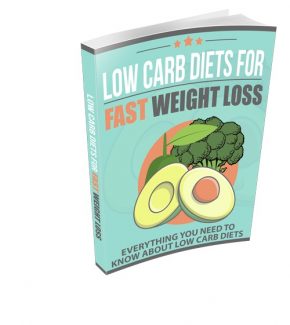 License Type: Resell Rights
License Type: Resell Rights  File Type: ZIP
File Type: ZIP
 SKU: 63865
SKU: 63865  Shipping: Online Download
Shipping: Online Download
Sample Content Preview
Why is the Population Becoming Fat?
Weight gain and obesity have become causes of health concerns in the western world.
Obesity in particular is one of the leading causes of preventable death in the world today. Studies have been conducted to establish the reasons why the world population seems to be gaining weight. Research has shown, for instance, that the general weight of the population today, is much higher than it was in the 1960s.
What are the factors that have contributed to this turn of events and what are the intervention measures that can be instituted to control it? Studies have shown that although our children still engage in physical exercises, just like the children of yester years, they still add weight and in some cases get obese. For the older people, lack of exercise, among other issues has been cited a reason for weight gain or becoming fat.
Obesity and weight gain have been attributed to the foods we eat. Research shows that we have increased our food intake which unfortunately contains a higher percentage of sugar than what the world population used to ingest about fifty years ago. Also, the amount of fat that we eat has considerably increased. This coupled with lack of exercise have been cited as the leading causes of weight gain. It's an established fact that when we get large portions of fatty foods, creamy desserts, alcohol and soft drinks full of sugar, our calorie intake gets higher. With a higher calorie intake, we are expected to do a lot of exercises to burn the excess calories. If this is not done, there is a calorie pile up that leads to weight gain.
The solution to these problems lies in the ability to change our eating habits. One way of controlling unnecessary weight gain is the eating low carb foods. This way, the amount of calories in the food is closely controlled and helps in making one healthier.
Low Carb diets have been defined differently depending on whether the point of discussion is centred on the amount of calories derived from carbohydrates or the percentage of carbohydrates in a diet. Generally though, low carb diets can be described as those diets that help the body to derive between 5% to 45 % of calories from Carbohydrates. The normal percentage of calories that is supposed to be derived from Carbohydrates, according to the U.S. guidelines on health is between 50% to 65%. Therefore, a low carb diet refers to a conscious effort to try and limit the intake of foods with high carbohydrate levels, especially those that cause a significant rise in blood sugar.
Although the debate on the advantages of a low carb diet is still going on, it's true that the tolerance of carbohydrates in the body varies from person to person. This type of diet, then, will suit or benefit those who are sensitive or whose tolerance to carbohydrates is low. The approach is to encourage the reduction of the intake of carbohydrates to levels that the body can tolerate. This approach targets the reduction or elimination from our diets foods like potatoes, white rice, white flour and sugar from the diet.
The reduction of carbohydrates intake has been known to cause weight loss in people. To control this, a low carb diet should be closely monitored so that immediately signs of weight loss are noticed; the intake of carbohydrates is slowly increased until the body can control blood glucose. It's also advisable to embrace the ketogenic diet where the body generates energy from body fats instead of glucose. This leads the body into what is called fat adaptation or ket adaptation. This adaptation encourages body metabolism which leads to improvement of stamina. Energy from fat is long lasting unlike energy from glucose which quickly diminishes..
What Is A Low Carb Diet?
We often hear about low carb diets and how successful they prove to be in losing weight, but what is a low Carb diet exactly?
The term "low-carb" means low in carbohydrate. Carbohydrates are usually found in foods like pasta, potatoes, fruit, bread and rice. A low carb diet does not entail any specific diet nor does it include well-defined steps to losing weight.
It is a rather loose term that varies according to the person who uses it. Some common features though, include consuming foods that are low in carbohydrate and glycemic. The consumption of carbohydrates leads the body to excrete insulin.
As carbohydrates get digested, glucose -the effect of insulin excretion- either gets burned by our body if it we need immediate energy or else gets stored as fat. More seriously, after consuming a meal that consists mainly of carbohydrates, the level of insulin in our body goes suddenly up and after a short time suddenly down. This effect causes us to be hungry only after 2 or 4 hours from our last meal, leading us to a vicious circle of being hungry, then eating and finally storing fat.
The main ways to define a low carb diet, following the initial question "What Is A Low Carb Diet?", is to clarify whether you are talking about the actual carbohydrate that an adult consumes daily or about the percentage of the calories in a person's diet that comes from carbohydrates.
The usual amount of calories that are allowed in an adult's diet is about 50-60%. So any percentage of calories coming from carbohydrates that is below that, can be thought of as low carb.
The most common misconception about low carb diets is that people who follow this kind of eating plan are actually striving to consume a zero amount of carb. That is not only untrue but it is also near to impossible considering that carbohydrates are hidden in most of the food we consume, especially processed food.
A diet low in carbs, as the name itself demonstrates, tries to reduce the carbohydrates in a low level, not eliminate them completely.
Another common myth is that a low carb diet forbids you from eating fruits and vegetables. The truth is that this food category is rich in carbohydrate, but that does not mean one should eliminate them from their diet. Fruits and veggies are the carbohydrates one should consume in a diet that is low of, but not deprived of carbs.
Among the benefits one could gain from following a low carb diet, is first and foremost the loss of weight and the increase of energy. People find themselves to be less sleepy and have better concentration and some cases have shown that people are experiencing a better mood.
Bad thoughts and feelings seem to be seriously reduced or lifted away. One cannot overstate the beneficial results of low carb eating habits. People have noticed improvements in their metabolism, a benefit that is considered to be a kick start for a diet focused on losing weight, even if the weight loss is initially insignificant. A shift in the metabolism is indispensable on the road to a healthy way of life and weight loss process.
The Benefits Of A Low Carb Diet
When you choose a diet, you want to make sure there are plenty of positive benefits beyond losing weight. You want to be healthier overall by eating in the manner the diet instructs you to eat on a daily basis. You also want to be able to follow the plan for life instead of just a few weeks or months. The benefits of a low carb diet will provide the healthy daily plan you can implement for life.
You may not realize that eating carbs can increase the chance of negative health issues. By reducing the volume of carbs daily that you eat, some medical conditions you often experience may occur less often. The frequency of headaches, joint pain, and trouble concentrating will diminish when you reduce the intake of carbs. This may help you reduce the amount of pain medicine you take when the pain of headaches and joints go away. So you will feel healthier and save money on medicine by the benefits of a low carb diet.








